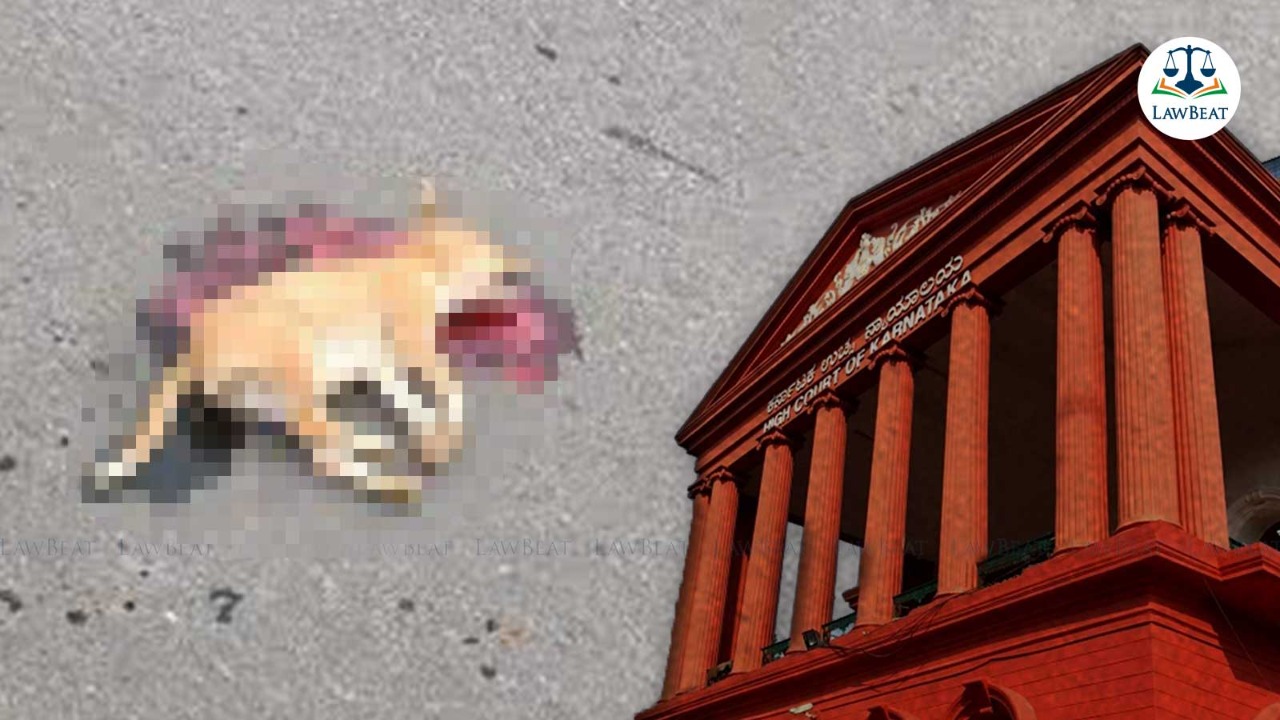Offence of "Rash Driving" Under Section 279 IPC Will Not Be Attracted In Case Of Injury/Death Of Pets: Karnataka HC Quashes Proceedings

The High Court while quashing the proceedings noted that the provision of Section 279 would not be attracted in case of injury or death of a pet due to rash driving in public places. The court also observed that if such submissions are considered then in case of the death of pets Section 302 will also be attracted
A Single Judge Bench of the Karnataka High Court comprising Justice Suraj Govindraj has held that injury or death of a pet while driving a vehicle would not attract the provisions of rash driving in a public place under Section 279 of the Indian Penal Code.
The High Court was hearing a petition filed for the quashing of proceedings in a case registered against the petitioner in 2018. An FIR was registered against the petitioner after the complainant’s mother had taken her pets for a walk and a Fortuner SUV vehicle hit one of the pet dogs. The complainant’s brother-in-law and sister took the pet dog to a Veterinary Clinic but the pet dog was declared dead.
Subsequently, the Vijayanagara Police Station was informed and after verifying the incident a case was registered against the petitioner under the Motor Vehicles Act and Indian Penal Code
The advocate for the petitioner argued that there is no mens rea on part of the petitioner to cause injury or harm to the pet dog and the said dog being on the road while the petitioner was driving resulted in the accident. He also argued that the provisions of rash driving under section 279 would apply only in case of accidents involving humans and not pets.
The advocate for the respondent argued that the petitioner ought to know that the action would have resulted in an accident which could have grave consequences since the petitioner has driven the vehicle in a rash and negligent manner. She also argued that the petitioner ought to know that in residential areas senior citizens would go for a walk in the evening. They have slow reflexes, no person should drive a vehicle at a fast speed.
The court referred to Section 279 of the IPC which is produced below
“279. Rash driving or riding on a public way.—Whoever drives any vehicle, or rides, on any public way in a manner so rash or negligent as to endanger human life, or to be likely to cause hurt or injury to any other person, shall be punished with imprisonment of either description for a term which may extend to six months, or with fine which may extend to one thousand rupees, or with both.”
The High Court observed that the above definition would cover endangering the life of a human being or act likely to cause hurt or injury to any other person i.e., a human being. Therefore, the said definition would not cover pets and therefore injury or death of a pet would not be covered under the said definition. The court noted
“A perusal of the above provision would indicate that the driver of the vehicle is to endanger human life or likely to cause hurt or injury to any other person. Though the heading of the Section is rash driving or riding on a public way, the same is only a heading. What is required to be seen is the contents of the provision. The above provision does not recognize and/or make an offence any injury caused otherwise than to human being. Thus, insofar as the injury or death caused to the pet or animal is concerned, the same would not amount to an offence in terms of Section 279 of IPC.”
The High Court rejected the arguments of the respondent who relied on Animal Welfare Board of India v. A. Nagaraja where in it was held by the Supreme Court that "no creature is superior to any human beings and animals are to be treated equally and that even the animals have a right to life". The High noted that the grounds in the said case were with reference to Sections 3 and 11 of the Prevention of Cruelty to Animals Act and that it cannot be made applicable to Section 279 of IPC since it is an offense being penal in nature and an interpretation cannot be rendered so as to make an act which is not an offence to be an offence under the said provision
The order also stated that
“If the submission of Ms.Anu Chengappa is accepted and the word person is interpreted to include an animal, then in the event of a death of a pet or animal, the offence under Section 302 of IPC would also be attracted which would not be the purport and intent of the IPC.”
The High Court exercised its inherent powers under Section 482 of the CrPc and quashed the proceedings registered against the petitioner under section Section 134(A & B) and 187 of the Motor Vehicles Act and Sections 279, 428, 429 of the IPC.
Case Title: Prathap Kumar G vs State of Karnataka & Ors
